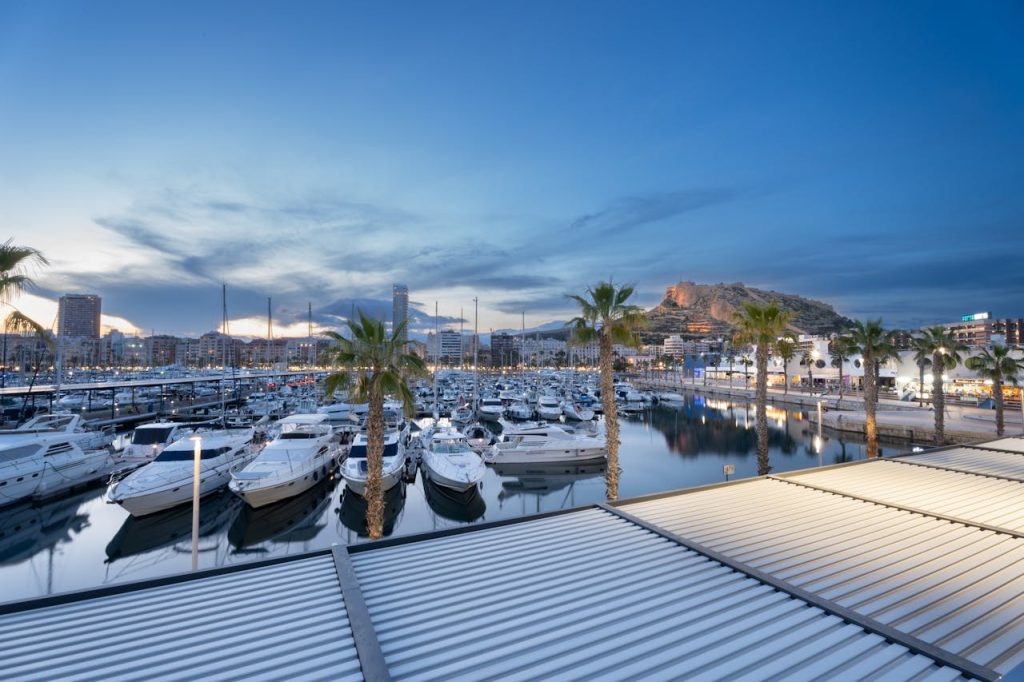
Alicante, a vibrant city located on the southeastern coast of Spain, offers a blend of historical significance, modern attractions, and stunning natural beauty. This article delves into the city’s culture, attractions, cuisine, and more, providing a comprehensive guide for anyone interested in exploring this captivating Spanish city.
The Rich History of Alicante
Alicante, or Alacant in Valencian, has a history that dates back thousands of years, with origins tracing to the Iberian civilization. Conquered by Romans, ruled by Moors, and finally reclaimed during the Reconquista, each era has left a distinct mark on the city’s architecture and culture.
The Castillo de Santa Bárbara, perched atop Mount Benacantil, is a testament to Alicante’s historical importance. Originally founded by the Carthaginians in 400 BC, the castle offers breathtaking views of the city and harbor. A visit here provides insight into Alicante’s strategic military significance through the ages, including its role in various sieges and battles.
Alicante’s Cultural Tapestry
Alicante is a hub of Spanish culture and tradition, hosting numerous festivals throughout the year. Perhaps the most famous is the Hogueras de San Juan (Bonfires of Saint John), a festival held in June that combines fire, fireworks, music, and parades. This UNESCO Intangible Cultural Heritage event culminates in the burning of ninots (large wooden figures) and is a spectacle that draws both locals and tourists.
The city is also home to several museums and galleries, such as the Alicante Museum of Contemporary Art (MACA), housing works by Spanish artists including Dalí, Miró, and Picasso. The Archaeological Museum of Alicante (MARQ), recognized as the European Museum of the Year in 2004, offers an innovative look at archaeology through interactive displays and artifacts from local digs.
The Lively Streets of Alicante
Alicante’s Explanada de España, a marble-laid promenade lined with palm trees, is the city’s main thoroughfare for leisurely walks and people-watching. Lined with cafes, stalls, and musicians, the Explanada is a vibrant spot in the heart of the city. Nearby, the Central Market offers a glimpse into the daily life of Alicantinos, showcasing stalls brimming with fresh produce, seafood, meats, and local delicacies.
The Barrio de la Santa Cruz, with its narrow streets and colorful houses, offers a picturesque climb to the heights of the old town, leading to the base of the Santa Bárbara castle. This area comes alive at night, with numerous bars and restaurants offering a lively nightlife scene that reflects the Mediterranean zest for life.
Beaches and Natural Beauty
Alicante is blessed with some of the finest beaches in Spain, with Playa del Postiguet located right at the city’s doorstep. This golden sand beach is popular for its accessibility and cityscape views. For a more secluded experience, Playa de San Juan, just a few kilometers from the city center, offers a longer stretch of sand, crystal-clear waters, and a quieter atmosphere.
Beyond the beaches, Alicante’s surrounding landscapes offer rugged coastlines, vineyards, and mountains that are perfect for hiking and exploring. The Canelobre Caves, just a short drive from the city, are a stunning natural wonder featuring some of the highest cave ceilings in Spain.
Alicante’s Gastronomic Delights
Alicante’s cuisine is a reflection of its coastal setting, with seafood taking center stage. Local dishes like arroces (rice dishes), including the famous paella, come in various forms and flavors, often cooked with fish or seafood caught just off the coast. Tapas are also a staple, with local bars serving everything from ensaladilla rusa (Russian salad) to calamares a la romana (fried squid rings).
For a truly local taste, one must try horchata, a refreshing drink made from tigernuts, typically accompanied by fartons, elongated sweet pastries perfect for dipping. Alicante is also renowned for its wines, particularly those from the nearby vineyards of the Vinalopó Valley.
Modern Alicante and its Economy
Today, Alicante is not only a tourist destination but also a thriving economic hub in the Valencia region. The city boasts a dynamic economy with strengths in tourism, services, and agriculture. Alicante has also embraced technology and innovation, hosting a growing number of startups and tech companies.
The city’s port plays a crucial role in its economy, serving as a major departure point for ferries to the Balearic Islands, as well as handling cargo and cruise ships. Alicante’s international airport, one of the busiest in Spain, connects the region to major cities across Europe and beyond.
Alicante Province
Alicante Airport